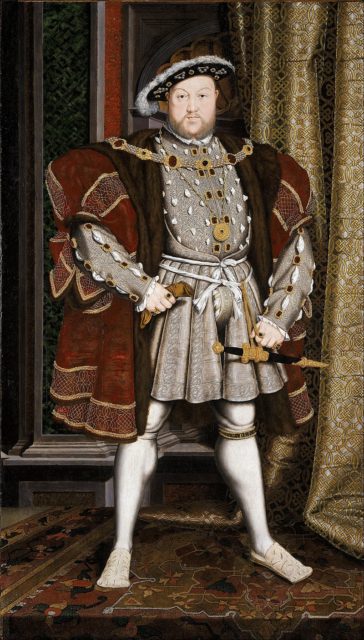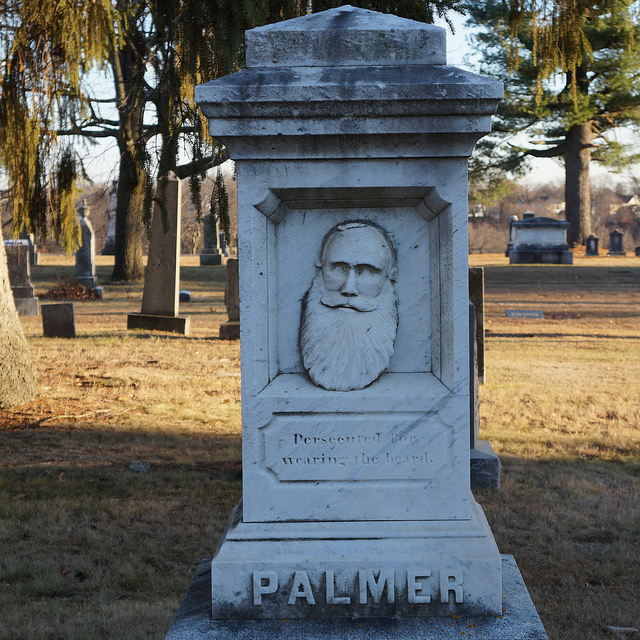With the advent of the modern-day hipster, we see some unconventional trends, but, as cynicism is a feature of our society, these trends are unmercifully mocked on the omnipresent reality of social media.
For instance, talk of “the hipster beard” has truly overtaken the Western world and, annoyed by this facial hair development, social media has done its fair share of shaming by way of “Memes.”
It was so very different in past centuries, when everyone would be furious over a person not respecting social norms and having the courage to try something “unique,” like sporting a beard in a time when everyone was bare-faced. Beards went out of fashion after 1720 in the United States, and men who had facial hair were deemed lunatics, heretics, and distasteful eccentrics lacking personal hygiene.
While men have shaved their beards from as far back as 100,000 B.C., not shaving was once considered distinguishable and prestigious. For ancient Greeks, a good, healthy beard was a clear sign of wisdom, knowledge, and insight. Cutting it from a man who grew one was a form of punishment.
However, in 16th century England, during the reign of King Henry VIII, a law was passed saying everyone was supposed to be clean shaven and beardless. Well, except for the King, a few close friends, and leaders of the Protestant Reformation who would continue to grow beards as large as they could, despite the hefty tax assigned for doing so. For King Henry, it was a privilege to enjoy, and for them, well for them it was a way to oppose the enactment of such silly social norms that aimed to depict every other beard-growing man as a barbarian and a heretic. It was to beard or not to beard for a few honorable men back then who fought for the right to have the choice.

The law did not last long, but the public opinion was already shaped and set, and from generation to generation it spread all the way to the new world, where, in the eyes of the many, to beard was an unusual trend at the very least and often times equal to choosing to live as a waif and a social pariah.
Then again, “the only people worthy of consideration in this world are the unusual ones,” as the beloved and renowned children’s author L. Frank Baum (The Wonderful Wizard of Oz) once wrote, closing with “for the common folks are like the leaves of a tree, and live and die unnoticed.” With these wise words in mind, a war veteran from No Town, a small settlement near Leominster and Fitchburg in Massachusetts, one who fought for freedom on the battlefield against the British in the great War of 1812, refused to be just another leaf on a tree and so lived his life as he saw fit after the war. He was not a typical man by any means, and today is remembered as a man who went to jail by protecting men’s fundamental right to choose to be different if he or she pleases. His name was Joseph Palmer, and he went to jail for nothing less than having a beard, or to be more precise, for protecting it.
Right after the war had ended, this man secluded himself from society to live a calm and peaceful life growing crops as a farmer. Influenced by a kind and bearded itinerant preacher he had known since childhood, Palmer began sporting a beard that grew quite large and lengthy over the years. As beards at the time were very unconventional, let alone offensive, by 1820, Palmer was considered frowzy and rather eccentric.
Despite being ostracized and constantly made fun of, the man was assertive in his choice. Let them be in protest or not, he insisted on continuing to wear a beard nevertheless. When he was asked by the local minister to “shave and not go around looking like the devil,” he replied, “if I remember correctly, Jesus wore a beard not unlike mine.”
Five years later, a few of the locals who were annoyed by his bearded face and resolute stance attacked the man out of nowhere, aiming to shave his beard off and cleanse his soul once and for all. Being a husky military man, Palmer, fortunately, repelled the attack by stubbing two of the assailants in the thighs.

He kept his beard, and despite the fact that the man was only defending himself, he was unpopular among folks in the town and so, in a twist of false events, was put on trial for “unprovoked assault” and sentenced to either pay the fine $700 plus court fees and expenses or serve almost a year and a half in Worcester County Jail. As he saw himself innocent of these charges and disturbed by the obvious injustice, he refused to pay and was thrown behind bars as a result.
There he kept an elaborate journal of his everyday prison life, which according to him and his daily recordings was a 19th-century version of Shawshank Redemption, except there wasn’t a guy who could get you things nor a Rita Haywood poster. Viewed as a bum and a lunatic in the outside world, Palmer was treated the same inside the prison walls, where his steadfast opposing “normal” social criteria was now met by sadistic jailers who tried everything they could to strip him of his unorthodox habits and beliefs.
Beaten nearly to death on many occasions and left sick to starve and rot in solitary confinement many, many times, he stood his ground firmly, even during times when fellow inmates targeted him or when a few foolish ones tried to shave off his beard. As you might have guessed by now, Palmer made life for them harder than they made his.
Inmates in time came to know the man behind that huge beard and to respect him for his beliefs after seeing he was willing to do anything to protect them, and, well, it was the same for the officers too. Soon enough inmates began to look up to him after hearing that he was always writing extensive letters to Calvin Willard, the Sheriff of Worcester Country, not to ask for his release, but to improve the living conditions in the prison, which were not livable by any means.
Fearing a potential riot, the officials inside treated him even worse then before. He was locked away far from anyone else in confinement or “the hole,” as they called it, for months at a time. But it was to no avail, for after he was returned to the general population, Palmer continued to defend his right to free speech and loudly fought for his cause, which now was not the beard alone but a decent life for all prisoners. His beard at this point could not be touched at all, as the realization dawned that it would cause mayhem in the prison if anyone attempted to cut it.

By now everyone inside and out was well aware of his case and the crime he did not commit, so with no options left, and to avoid public shaming from the outside or trouble within the walls inside, he was once again offered to pay the fine and walk out. He refused. He was then told he’d only have to pay the court expenses and not the fine. He refused again, believing paying a price for something he didn’t do was the same as an admission of guilt. “If I ain’t safe person to have my Liberty I ought not to go out. And I am willing to stay in confinement till I am.”
Palmer was so assertive in his decision and unyielding that it came to the point where the same judge who had previously put him behind bars came to his cell and practically begged him to pay the small amount and sign the release. When this wasn’t enough, he then pulled out a letter written by Palmer’s 80-year-old mother and asked for the same, begging her son to come home already.
So, Palmer did what every normal man who gets a letter from his mom urging him to leave jail would do, he paid the fine, signed the release, and after 15 months, Palmer finally left the prison, with his beard intact. While the warden, the officers left behind, and David Brigham as well, the cunning trickster who pulled out the mom card, all thought they’d heard the last of the bearded man, their hopes were crushed when they just happened to read his name in the Worcester Spy where he’d sent his journal. Its publisher was more than happy to publish every single detail.
Read another story from us: The Spruce Girls: Ladies wearing spruce veneer bathing suits in 1929
Palmer’s beliefs drove him to grow a beard that then led him to prison, eventually shaping him into what he was most remembered for–and it was not for his beard alone but for his relentless freedom fighting and years dedicated to prison reformation and abolition of slavery after his time in prison had ended. The honest friendships he shared with esteemed figures such as Ralph Waldo Emerson, Henry David Thoreau, and Louisa May Alcott, were a testament to his character. Alcott was so inspired by Palmer, whose gravestone now reads “Persecuted for Wearing the Beard” right under an image of his bearded face, that she even dedicated a character to him in one of her books.
It is also worth mentioning that during his “reign,” beards came back into popularity and America had its first ever bearded president, Abraham Lincoln.
